“They’ll grow in.”
That’s what Jeanne Marley heard for years about her daughter, Erica Green’s, missing teeth. But, many never did. No doctor or dentist could give her answers as to why her daughter’s teeth were missing and shaped differently.
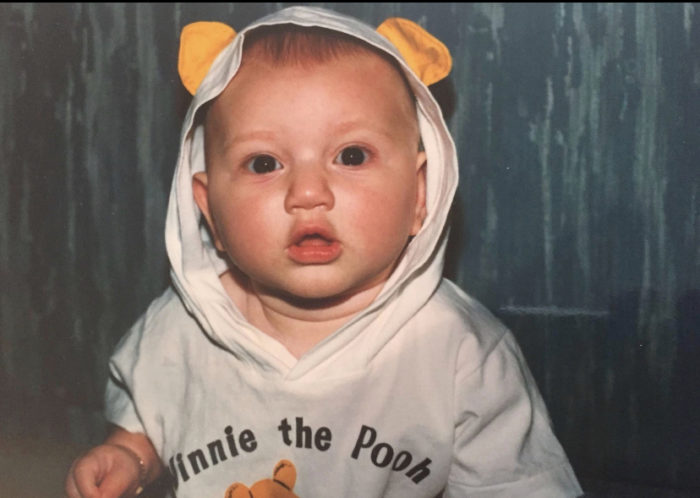
Erica was missing 10 teeth. Because she presented “normal” otherwise, no health professional was concerned. They told Jeanne, “It’s just the way it is.”
Until 24-year-old Erica diagnosed herself last year.
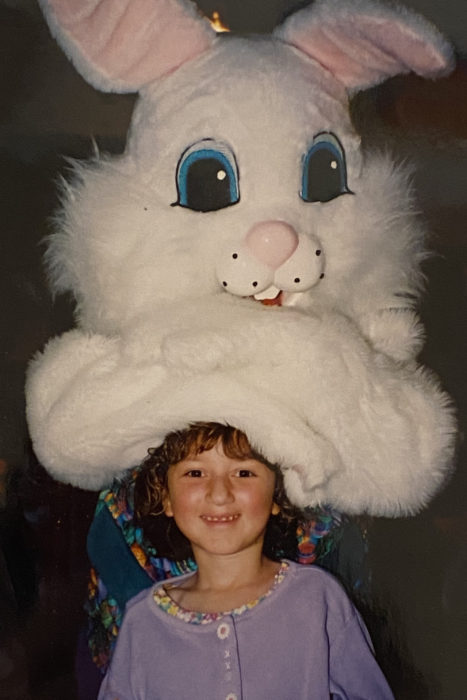
When her dentures, which were snap-on appliances, broke in 2020, Erica searched the internet to seek permanent treatment options.
Finding a Name for It
She learned about oligodontia, which is a rare condition where at least six teeth are missing. She finally had a name for it! Or, so she thought.
Erica joined an oligodontia Facebook group where others were posting pictures of their teeth. None of their teeth were shaped irregularly like hers so she wasn’t sure if this is what she had. Then, someone posted about the Ensuring Lasting Smiles Act (ELSA). Erica found the National Foundation for Ectodermal Dysplasias (NFED), which was leading efforts to get the legislation passed.
On the NFED website, she saw pictures of others whose teeth DID look like hers. She read about other parts of the body it affects. While her nails and sweat glands were normal, she sometimes gets eczema.
And, her hair is thin and rarely grows. She’s never needed a haircut other than to trim split ends. She had never connected her unique hair to her missing teeth! It was a revelation.
Armed with her diagnosis theory, she visited an oral surgeon last year to explore more permanent treatment options. He asked her a lot of questions. When she asked if he thought she could have ectodermal dysplasia, he said, “Of course!”
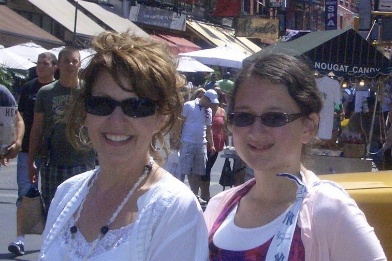
The young dentist had seen a young patient with ectodermal dysplasia in his residency. He wrote a letter to her primary care physician recommending a genetic consultation to confirm the diagnosis. She’s still waiting to hear back about getting an appointment.
No Hair Cuts Needed
Erica has beautiful curls, but her hair doesn’t grow. She believes her curls cover up how thin her hair truly is.
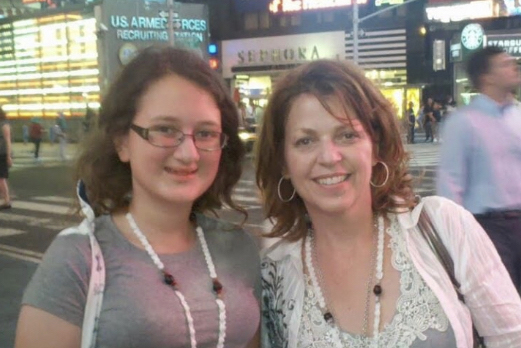
I never understood why people would want short hair, why they would want to cut it. I guess since my hair presented normally (even though it’s thin), no doctor questioned that something could be wrong with it.”
– Erica
Jeanne and Erica chuckled thinking back to all of the things they tried to stimulate her hair growth. They tried biotin, other treatments. Nothing worked. Now, they know why.
“When she was growing up, I didn’t have the internet or social media to look things up. Now you can find information and others who have this,” Jeanne said.
And that’s what Erica has loved about finding the NFED.
Finding a whole foundation (NFED) and people who have my condition was great! I looked on Instagram and connected to Kaitlyn Squibb, another young woman who is similar to me. I have never met anyone like me. It was interesting to talk to someone like her who has a typical appearance but has teeth issues.”
– Erica
“I’m grateful that it mostly affects my teeth,” Erica said. “But, I do think it impeded me getting a diagnosis. Everyone would just tell me, ‘you look fine,’ because I had dentures to cover my real teeth.”
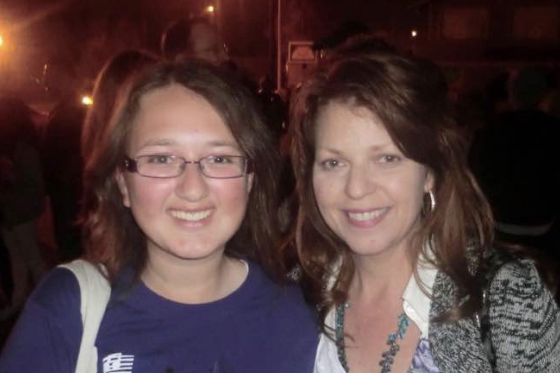
Her Dental Journey
Despite growing up without a name for her condition, she did have a family dentist who helped get her “snap-on smile” the summer before she was entering eighth grade. He removed the braces that were on her two front teeth to pull them together, and created a denture that snapped on to her top and bottom teeth.
“When Erica returned to school, the other kids noticed her teeth but just said, ‘oh, you got your braces off.’ They didn’t even realize she had the dentures. I was grateful that she had something to get her through junior high and high school,” Jeanne said.
She wore that first appliance until April 2020. Erica has nine permanent teeth and the rest are baby teeth, many of which have been loose for a long time. This young woman always has to very careful about what she eats.
I’ve never bit into an apple. I don’t eat corn on the cob. I’ve never had hard candies. With my snap-on, I can eat more, but I still must be very careful.”
– Erica
When a new dentist pulled four baby teeth in December of 2019, it caused her appliance to break a few months later. That drove her to look for a diagnosis and a more permanent treatment option. Since then, it’s been repaired, broke again, and then she was able to get a new snap-on device. She’s exploring dental implants and other treatment options.
The oral surgeon who diagnosed her admitted to not feeling experienced enough to treat her.
“I respected him for telling me that he didn’t feel comfortable treating me.”
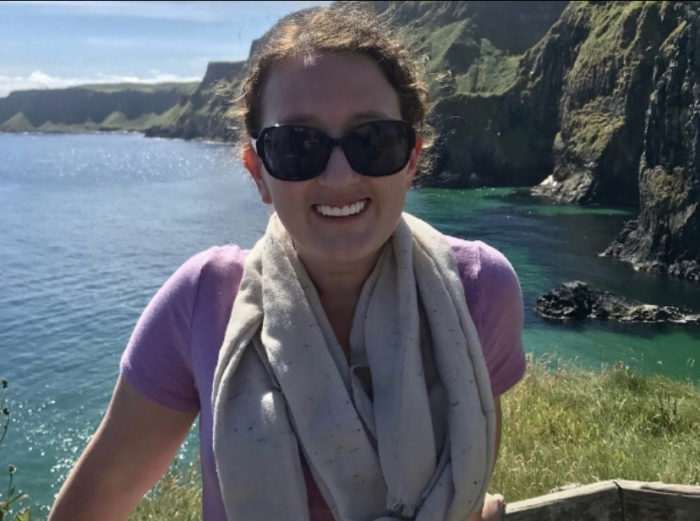
In the meantime, she’s been working with the NFED staff to find a knowledgeable care provider. Erica’s willing to be patient and wait to get the right team.
Runs in the Family?
Erica and Jeanne aren’t sure where the ectodermal dysplasia came from or if it’s new in her. Erica’s father, who passed when she was 10, had missing teeth. But so did Jeanne’s dad. They are hoping to explore their family history more when they finally get to meet with a genetic team.
It feels great to have a name for my condition! It’s always been hard to explain to people. When I was younger, I wanted to keep it a secret. I had trouble explaining my missing teeth. No one would get it. It was always confusing to me. I didn’t understand. Now, I have something to tell people. It’s the best feeling!
– Erica
One Smart Cookie
Erica was born special, according to her mom. But it’s not because she has this condition. It’s because she is gifted.
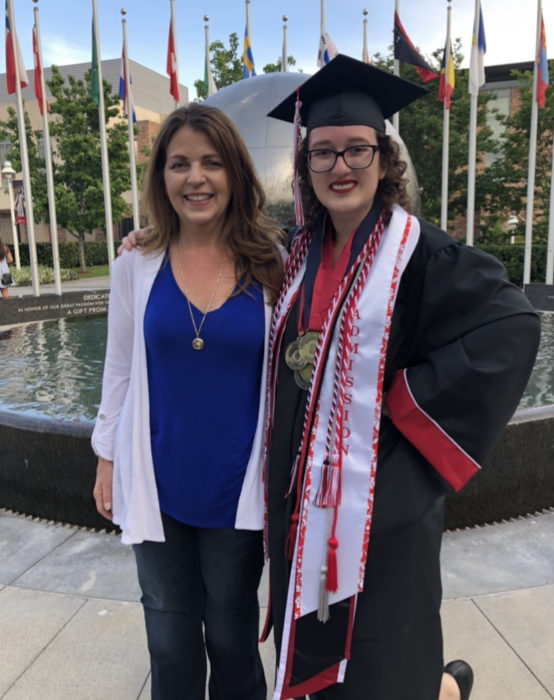
“I was always told that Erica was perfectly healthy,” Jeanne said. “And, she had this brain! Erica knew her letters by 9 months old. She was reading books by age two. She was just a super smart kid. Erica’s an only child so I didn’t realize how advanced this was until she started school. She tested into Oxford Academy, which is a top public school in the country. We never had the crazy teen years. I never have to worry about Erica.”
Erica breezed through high school and college where she got her bachelor’s in psychology. She’s currently a graduate student at Chapman University where she’s studying to become a school psychologist. She dreams of working in an elementary school after she graduates in 2022 to assist students in getting the help they need.
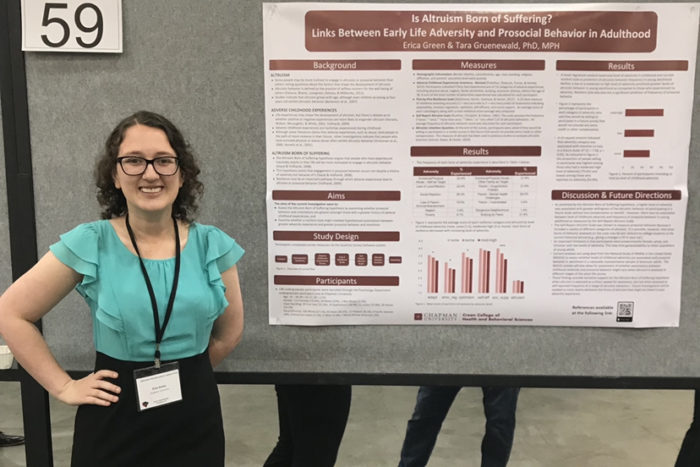
Her Support Network
Erica is grateful to have a group of best friends from high school who refer to themselves as the “Stay Home Club.” Her pals know about her ectodermal dysplasia and have always supported her.
She waited to date but now has a special guy in her life, Daniel, who accepts her for who she is.
“I always worried about what a guy would think about my teeth. Daniel said, ‘Your teeth are so nice and white’ before learning that I wear dentures. I felt comfortable to take my teeth out and show him. He wasn’t judgmental, just very supportive.”
Jeanne said her dream for Erica is for her to be happy in life.
“I know she’ll be successful in whatever she does, but I want her to have a happy life.”
Ah-Ha Moments
This mom and daughter are close and have learned a lot since finding the NFED last year.
I have been thinking a lot about dental treatment and how it should be a right not a privilege. Lots of people who need treatment don’t get it because of socio-economic status. My snap-on smile was called cosmetic by insurance companies. Yes, it helps make my teeth aesthetically pleasing. But, I can’t eat without them. But, if dentists and insurance companies are not familiar with ectodermal dysplasias, it makes it so hard for people to get the treatment they need.”
– Erica
Jeanne looks back and wishes she had pressed doctors more to get Erica a diagnosis.
“I would encourage others to be more adamant about getting answers. Search, do more research. I didn’t want her to stick out, I wanted her to have a normal life so I didn’t press as much. Read the information from the NFED. I read their insurance resources and know they are going to help as we get Erica’s treatment. Know you are not in this by yourself.”
Erica agrees.
“Join the NFED’s Facebook groups. Learn about others’ treatment journey. I asked questions like ‘How do crowns feel?’ Use their resources online.”
An Amazing Year
What a year 2020 was for Erica and Jeanne! A broken denture which led to a self-diagnosis. A new support network of caring people in the NFED family. And, resources to help them on their dental treatment and insurance journey!
It’s amazing how hearing just two words – ectodermal dysplasia – can change your life. Erica’s future was always bright. But, now she can move forward with resources that will make her journey easier. The NFED stands ready to help. And, all of us in the NFED family are excited to watch her story unfold!
Would you like to share your experience with ectodermal dysplasia? We’d love to tell your story. Submit yours today!

Hi Erica and Jeanne!
Thanks so much for sharing your collective story. I am so glad that you found an answer for all of your unanswered questions and that you found the NFED! I’m wishing you the best of luck on your dental implant journey.
Thank you so much for sharing your story as well! I’ve learned so much from you!
Erica,
Your story reminds me so much of my daughter who is 19 and in college. She only has 13 permanent teeth. She also has eczema and thin hair. We discovered our genetic mutation is in the WHT10A gene. I suspect your’s may be as well. You are beautiful and so are your teeth! My daughter decided on crowns and bridges with a single implant to replace 7 front teeth. She did not want to go through the grafting process. Her teeth are beautiful now! We couldn’t be more happy! Good luck with your decision!
Hi Kim, thank you so much for sharing! Right now, my upcoming treatment plan sounds very similar to your daughter’s with crowns and bridges. I may need one implant as well, but my prosthodontist and I are trying to take a conservative approach. It’s so great to hear that your daughter’s teeth turned out so nicely, it definitely gives me hope!
I mean the WNT10A gene!
Erica & Jeanne, Thank you for sharing your stories. I’m glad that more information is coming out about Ectodermal Dysplasia and you were able to get some answers!
There was a good amount of your story that was exactly the same thing I went through growing up in the 80s & 90s.
I suppose the biggest difference is I’ve still not talked with someone like myself. Someone that understands what it was like. Maybe one day I’ll join a group & break down that wall.
Anyway, I just wanted to say thank you for being strong and sharing your story.
Thank you so much for sharing! I’m grateful there is available information about ectodermal dysplasia now, and I’m hoping more people become aware of it in the future!
Hi Erica you did great on it you are the best neighbor in whole world we love you both of you guys
Thank you, Brittaney <3
Erica and Jeannie you two are a beautiful pair. What a great success story. I am so happy that there are so many options now for having nice teeth. I didn’t have NFED but I have gone through a lifetime battle with my teeth. A smile is a wonderful thing and you, Erica, are beautiful ❤️
Thank you so much for sharing! I’m so grateful I found NFED. Without their information, I would’ve never known! Glad you are connected to NFED now as well!
This is a story many can relate to. Thanks to Erica and her mom for sharing it
Thank you for taking the time to read it!
Thnku for shared ur beautiful story n all beautiful pic love u both
Thank you <3
You are beautiful inside and out, Erica. Thank you for sharing your story and journey. Jeanne, you are an incredible mom. So thankful to know you both.
Thank you so much for reading, I’m so thankful for you too!
Thanks so much for sharing your story! It is similar to my son’s story too! Beautiful, heartfelt story! Thank you!
Thank you so much! I’m happy my story is so relatable to others!
Thank you so much for reading!
Erica is my cousin I had no idea that she had a dental Condition.
I happen to be a dental lab owner perhaps I may have giving her support in the early days if I had been more open with my cousin.
Etremely happy for Erica and Jeanne with this report & finally the Discovery of NFED .
We are happy that Erica and Jeanne found the NFED, too!
Thank you so much for your story. 4 months ago I was pulled into the back room of my daughter’s dentist office and told she was missing 6 permanent teeth on bottom and 4-6 on top. I was shocked. The more I look into this , the more I see it might be what you have. She has excema, she has concave toe nails. I don’t know the best dental places to go or what to do. Can I ask, is there a way to find a dentist who knows about this and what to do?
Please contact our office at 618-566-2020 or you can register at https://nfed.org/join-us/ to receive information. We’re here for you and your family.
Love you Erica! Ver informative article. I knew when you were two just how intelligent you were. So very proud of my grandniece. Aunt Shirley.
Thank you Erica and Jeanne for your story.
I recently self-diagnosed with Ectodermal Dysplasia. I had no baby teeth, and my permanent teeth were sparse, crooked, and grew in with cavities. I got dentures in high school in the 1950’s!
I was born with 6 fingers on each hand. I had no hair until the age of three and have lost it several times. Also I have weak nails and I don’t sweat.
I always felt like a freak! And I’m a retired school psychologist! Good luck Erica! Your personal experience will be so helpful!! Joyce
Hi Joyce! Thank you so much for sharing! And even more amazing that you’re a School Psychologist too! I don’t meet many School Psychologists outside of work, let alone one with ectodermal dysplasia as well. Thank you so much for reading!